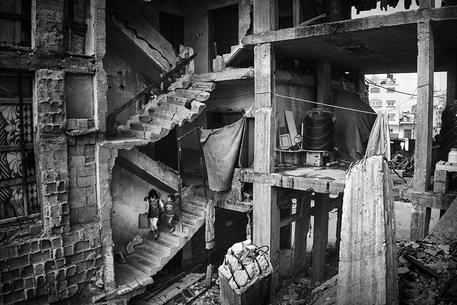(ANSAmed) - PRATO, APRIL 30 - ''Gaza is an isolated area poor
in resources, entirely dependent on the exterior, even simply to
feed its people. The main resource it requires to live, water,
is no exception,'' photographer Massimo Berruti said about his
'Gaza: Eau Miracle'.
The photo reportage focuses on one of the main problems that
the one million residents of the crowded Gaza Strip have to deal
with.
Crushed by a lengthy embargo and victim of continued attacks,
Gazans suffer countless difficulties simply in trying to
survive.
The issue is the focus of a Phototalk with Berruti on May 3
at the Mediterraneo Downtown festival in Prato at 6:30 PM in the
former San Giovani church.
Berruti focused on the continuing deterioration of water
supplies in the enclave, due to ''in the past, the underground
was the main source of drinking water, but years ago the water
table began to absorb water from the polluted sea, contaminating
the small amount of fresh water that was still available''.
He added that ''the town councils are not able to provide
drinking water to their citizens, and so people have to buy it
themselves. Filtered water can cost as must as 4.50 USD per
cubic meter and few people can afford this. After Operation
Protective Edge in the summer of 2014, the situation grew worse:
many water and electrical facilities were seriously damaged,
leading to an emergency. No way out has yet been found.''
''The survival of the entire younger generation - the most
numerous, fragile and exposed - is under threat,'' Berruti
warned. (ANSAmed).
Gaza water as a 'miracle' in Berruti's photo reportage
Mediterraneo Downtown discusses water crisis
